KI-Media is starting a series on From Dictatorship to Democracy by Gene Sharp whereby a chapter from this book in both English and Khmer (thanks to Kaun Khmer Srok Sre) is published every 2-day interval, with prior submissions listed in the left-hand menu bar for easy recall. The emphasis is that of KI-Media. For its original complete text go to:
This book has been translated into KHMER (!!) by Mr. Ung Bun Ang and its full version is available at:
Be inspired! Be coordinated! And take action!
KI Media
. . . . .
From Dictatorship to Democracy
PREFACE
One of my major concerns for many years has been how people could prevent and destroy dictatorships. This has been nurtured in part because of a belief that human beings should not be dominated and destroyed by such regimes. That belief has been strengthened by readings on the importance of human freedom, on the nature of dictatorships (from Aristotle to analysts of totalitarianism), and histories of dictatorships (especially the Nazi and Stalinist systems).
Over the years I have had occasion to get to know people who lived and suffered under Nazi rule, including some who survived concentration camps. In Norway I met people who had resisted fascist rule and survived, and heard of those who perished. I talked with Jews who had escaped the Nazi clutches and with persons who had helped to save them.
Knowledge of the terror of Communist rule in various countries has been learned more from books than personal contacts. The terror of these systems appeared to me to be especially poignant for these dictatorships were imposed in the name of liberation from oppression and exploitation.
In more recent decades through visits of persons from dictatorially ruled countries, such as Panama, Poland, Chile, Tibet, and Burma, the realities of today’s dictatorships became more real. From Tibetans who had fought against Chinese Communist aggression, Russians who had defeated the August 1991 hard-line coup, and Thais who had nonviolently blocked a return to military rule, I have gained often troubling perspectives on the insidious nature of dictatorships.
The sense of pathos and outrage against the brutalities, along with admiration of the calm heroism of unbelievably brave men and women, were sometimes strengthened by visits to places where the dangers were still great, and yet defiance by brave people continued.
These included Panama under Noriega; Vilnius, Lithuania, under continued Soviet repression; Tiananmen Square, Beijing, during both the festive demonstration of freedom and while the first armored personnel carriers entered that fateful night; and the jungle headquarters of the democratic opposition at Manerplaw in “liberated Burma.”
Sometimes I visited the sites of the fallen, as the television tower and the cemetery in Vilnius, the public park in Riga where people had been gunned down, the center of Ferrara in northern Italy where the fascists lined up and shot resisters, and a simple cemetery in Manerplaw filled with bodies of men who had died much too young. It is a sad realization that every dictatorship leaves such death and destruction in its wake.
Out of these concerns and experiences grew a determined hope that prevention of tyranny might be possible, that successful struggles against dictatorships could be waged without mass mutual slaughters, that dictatorships could be destroyed and new ones prevented from rising out of the ashes.
I have tried to think carefully about the most effective ways in which dictatorships could be successfully disintegrated with the least possible cost in suffering and lives. In this I have drawn on my studies over many years of dictatorships, resistance movements, revolutions, political thought, governmental systems, and especially realistic nonviolent struggle.
This publication is the result. I am certain it is far from perfect. But, perhaps, it offers some guidelines to assist thought and planning to produce movements of liberation that are more powerful and effective than might otherwise be the case.
Of necessity, and of deliberate choice, the focus of this essay is on the generic problem of how to destroy a dictatorship and to prevent the rise of a new one. I am not competent to produce a detailed analysis and prescription for a particular country. However, it is my hope that this generic analysis may be useful to people in, unfortunately, too many countries who now face the realities of dictatorial rule. They will need to examine the validity of this analysis for their situations and the extent to which its major recommendations are, or can be made to be, applicable for their liberation struggles.
Nowhere in this analysis do I assume that defying dictators will be an easy or cost-free endeavor. All forms of struggle have complications and costs. Fighting dictators will, of course, bring casualties. It is my hope, however, that this analysis will spur resistance leaders to consider strategies that may increase their effective power while reducing the relative level of casualties.
Nor should this analysis be interpreted to mean that when a specific dictatorship is ended, all other problems will also disappear. The fall of one regime does not bring in a utopia. Rather, it opens the way for hard work and long efforts to build more just social, economic, and political relationships and the eradication of other forms of injustices and oppression. It is my hope that this brief examination of how a dictatorship can be disintegrated may be found useful wherever people live under domination and desire to be free.
Gene Sharp
6 October 1993
Albert Einstein Institution
Boston, Massachusetts
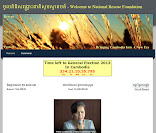
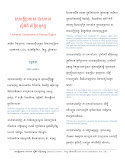







.jpg)




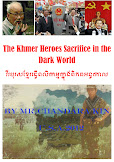


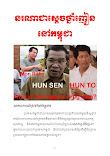


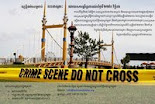



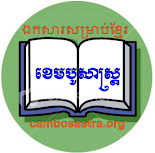

15 comments:
From Dictatorship to Democracy,
For Cambodia this is just as a fake democracy.
Thank you for this valuable book. I encourage all Khmers to take the time to read and understand it very well. Knowledge is Power!
LIFE IN THE FAST LANE!
Control = do as I say
Bribery = up front
Corruption = pay day
Honey = one night stand
Money = here and there
Clubbing = out of control
Straight = sharp all the time
I did give one copy to Kem Sokha when he came in Tacoma, Washington in 2006 in his preparation for his HR political party.
He did read it with his FOREHEAD.
I was frustrated of him, and then learnt that what kind of MAN HE IS!
A SELF-AMBITION MAN, that what he is.
Sithan Hin
For the unprotected copy of the Khmer version, please follow the link below to download the book in PDF. I hope KI-Media can now extract the chapters. Normally file protection has its purpose. I personally destroy this file protection in hope that it can be used more fully. I'm sorry if this causes copyright infringement.
http://www.megaupload.com/?d=WG2HLJ0Q
កូនខ្មែរស្រុកស្រែ
Thank you KI MEDIA for this service! I look forward to read the next posting.
khmer people can learn from this principle.
i just printed ou whole text, i fou nd it very encouraging. thanks ki media
The country like Cambodia no need a democracy like the Western .this due to mentality of Khmer people .Cambodia still need strong man to lead its country . Just look Thailand this Country is Just running out from democracy ..you know why the democracy doesn't work anymore ! because must of the time the politic party who win the election its depending from the small number of citizen whose named The undecided only . Just look at USA . there are only two big politic party republic and democrat.and there are about 40% of American is Republic
and another American 40% is Democrat .and the mentality of Those citizen they will absolutely vote for their party ..never change ,Whatever its party committed a big problem ,then at this point
that why the vote from the undecided will make a different .so that mean there only 20% voter only
who will decide for the future winner .
bad Grammar
We should have a free download ebook for this book.
If you provide million copies to Cambodia government, you will waste your money and time for publishing these books.
There will be no real democracy in Cambodia in term of my observation since 1991 so far and remains no democracy.
This country s under communist gang which cannot be reached real democracy, but can reach the fake ones.
Khmer in Phnom Penh
bad Grammar of 11:51, read the book. or you can't read have someone read to you.
Hun Sen strongman in violence, Sam Rainsy strongman for the better of Cambodia.
Cambodians are not mature enough for democracy. The prove is everytime Hun Sen goes to or comes back from oversea trip, all of ministers go to the airport stand along the red capet, like monkeys, waiting for Hun Sen.
The only way to implement democracy in Cambodia is to use force.
Bad Grammar,
your observation is very good
but your conclusion is wrong.
40% + 20% will make 60%, the lected government will represent 60% of people, that's democracy.
With Cambodian actual fake democracy, CPP represents only 30% of Cambodians.
DO YOU SEE THAT HUN XEN IS LEADING HIS FAMILY AND HIS CRONIES TOWARD SADDAM HUSEIN.
DO NOT WORRY. HUN IS WORRY RIGHT NOW. BEC HE IS RUN TO END OF ROAD.
HUN XEN CAN RUN BUT CAN'T HIDE...
KEEP ON PUSHING...
KEEP ON PUSHING...
KEEP ON PUSHING...
Post a Comment